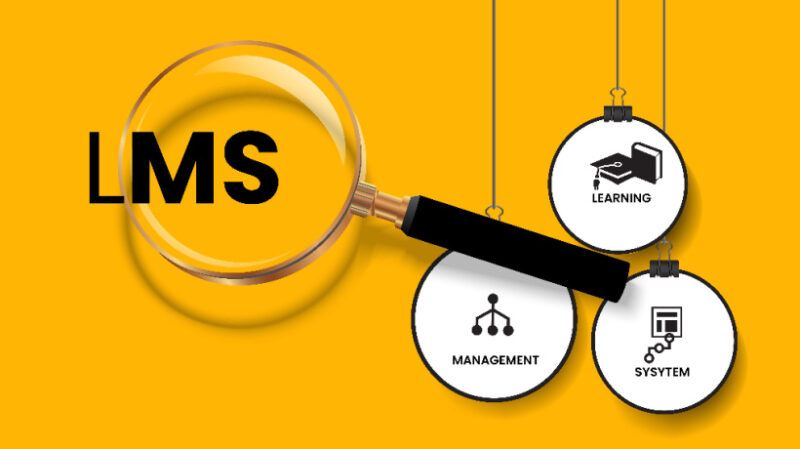
How LMSs Have Transformed Educational Delivery
Learning Management Systems have come a long way since their inception. Initially designed as simple tools for content delivery, modern LMS platforms have evolved into comprehensive ecosystems that support various aspects of the learning process. From course creation and delivery to student engagement and performance tracking, LMSs are now at the forefront of educational technology.
The journey of LMSs began in the late 1990s with basic online course management tools. These early systems primarily focused on content distribution and basic assignment submissions. However, as internet connectivity improved and digital literacy increased, LMS platforms began to incorporate more sophisticated features. By the mid-2000s, LMSs had become central to distance learning programs and started to gain traction in traditional educational settings as well.
Today’s LMSs are cloud-based, mobile-friendly, and integrate seamlessly with other educational technologies. They have become indispensable tools for educational institutions and businesses alike, facilitating not just content delivery but also fostering collaboration, personalization, and data-driven decision-making in the learning process.
Key Features Driving The Adoption Of LMSs In Educational Settings
1. User-Friendly Interfaces
Today’s LMS platforms prioritize intuitive design, ensuring that both educators and learners can navigate the system with ease. This focus on User Experience has significantly reduced the learning curve associated with adopting new technology, making LMSs more accessible to a wider range of users.
2. Personalized Learning Paths
Advanced algorithms allow LMSs to tailor content and pacing to individual learner needs, maximizing engagement and retention. By analyzing user data and performance metrics, these systems can recommend appropriate content, adjust difficulty levels, and provide targeted feedback, creating a truly personalized learning experience.
3. Collaborative Tools
Discussion forums, group projects, and peer review features foster a sense of community and encourage active participation. These tools bridge the gap between physical and virtual classrooms, enabling students to engage in meaningful interactions with their peers and instructors regardless of their location.
4. Mobile Compatibility
With the increasing use of smartphones and tablets, modern LMS solutions offer seamless mobile experiences, allowing learners to access content on the go. This flexibility caters to the needs of today’s learners who expect to be able to study anytime, anywhere.
5. Analytics And Reporting
Robust data analysis tools provide valuable insights into learner performance, helping educators make informed decisions and improve course content. These analytics can track everything from engagement levels and time spent on tasks to performance trends and areas of difficulty, enabling targeted interventions and continuous improvement of educational strategies.
6. Content Management
LMSs offer powerful tools for creating, organizing, and distributing educational content. Features like multimedia integration, version control, and content reusability make it easier for educators to develop and maintain high-quality learning materials.
7. Assessment And Feedback
Modern LMSs include a variety of assessment tools, from quizzes and tests to peer evaluations and portfolio assessments. Automated grading features save time for educators, while immediate feedback mechanisms enhance the learning experience for students.
The Impact Of LMSs On Education And Training
The implementation of LMSs has led to significant improvements in various educational settings:
- Higher education Universities and colleges use LMSs to offer blended learning experiences, combining traditional classroom instruction with online resources.
- Corporate training Businesses leverage LMSs to streamline onboarding processes and provide continuous professional development opportunities for employees.
- K-12 education Schools utilize LMSs to enhance classroom learning, facilitate remote education, and improve communication between teachers, students, and parents.
Future Trends In LMS Development
As technology continues to advance, we can expect to see exciting developments in the LMS space:
- Improved personalization LMS platforms will continue to refine their ability to create tailored learning experiences based on individual user data and preferences.
- Virtual and Augmented Reality integration Immersive technologies will enhance engagement and provide hands-on learning opportunities in virtual environments.
- Microlearning capabilities LMS platforms will increasingly support bite-sized learning modules, catering to modern attention spans and busy schedules.
- Advanced data security As data privacy concerns grow, LMS providers will focus on implementing robust security measures to protect user information.
- Gamification enhancements More sophisticated gamification elements will be integrated to boost learner motivation and engagement.
Conclusion
Learning Management Systems have become indispensable tools in the modern educational landscape. By continuously adapting to technological advancements and user needs, LMS platforms are set to play an even more crucial role in shaping the future of learning. As we move forward, the focus will remain on creating more personalized, engaging, and effective learning experiences for users across all educational sectors.



